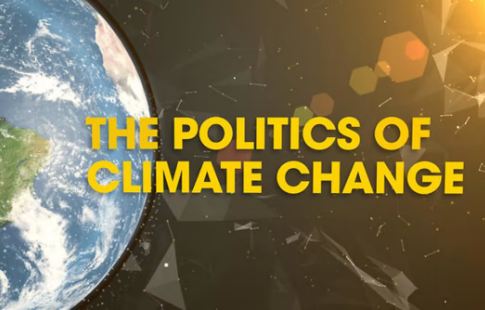Sabah Aslam
Introduction
Climate change is a critical issue that poses extensive challenges to the environment, economy, and human well-being. This problem requires a collective effort from governments, organizations, and individuals worldwide. However, in the context of the Third World, including Pakistan, the politics surrounding climate change often complicate the formulation of effective policies and hinder global cooperation. This article aims to explore the various policy approaches and analyze the politics involved in addressing climate change, emphasizing the importance of global cooperation in finding sustainable solutions.
Policy Approaches to Climate Change
Mitigation: Mitigation strategies primarily focus on reducing greenhouse gas emissions to minimize the extent of climate change. In the context of the Third World, including Pakistan, mitigation involves transitioning to clean energy sources, improving energy efficiency, promoting sustainable land use practices, and implementing regulations to limit emissions. The Paris Agreement, signed by nearly all countries, including Pakistan, in 2015, exemplifies the global recognition of the need for mitigation efforts. It establishes a comprehensive international framework with the objective of preventing severe climate change, which involves placing a cap on global warming well below 2°C and actively striving to limit it to 1.5°C.
Adaptation: Adaptation strategies aim to enhance resilience and minimize the negative impacts of climate change. In the Third World, adaptation involves investing in climate-resilient infrastructure, implementing early warning systems, developing drought-resistant crops, and enhancing coastal protection measures. Adaptation policies play a crucial role in ensuring that communities can withstand and recover from the effects of climate change, particularly in vulnerable regions.
International Cooperation: Climate change is a global problem that transcends national boundaries. International cooperation is particularly vital for the Third World countries, including Afghanistan, Pakistan, and other regional states to effectively address climate change. Collaborative efforts encompass sharing knowledge, technology, and financial resources among countries, fostering climate-related research and development, and establishing global frameworks to coordinate efforts and hold nations accountable. Developing countries rely on the support of developed nations to navigate the challenges posed by climate change.
The Politics of Climate Change in the Third World
National Interests and Competing Priorities: The politics of climate change in the Third World, often revolve around competing national interests and priorities. Some countries in the Third World, possess significant fossil fuel reserves and may be hesitant to adopt aggressive climate policies due to economic considerations. Striking a balance between economic growth and environmental sustainability becomes a challenging task, leading to differing policy approaches and conflicts during international negotiations.
Political Will and Leadership: The level of political will and leadership within a country plays a pivotal role in climate policy. Governments in the Third World, with strong leadership and a commitment to climate action, are more likely to implement ambitious policies, engage in international climate agreements, and drive change at the national level. Conversely, political instability and short-term political considerations can impede progress in climate policy.
Disparities in Responsibility and Capability: Climate change mitigation and adaptation efforts often face disparities in responsibility and capability among nations. Historically, developed countries have contributed the most to greenhouse gas emissions, while developing countries, such as Pakistan, often bear the brunt of climate impacts. This divide can create tensions during negotiations, with developing countries seeking financial and technological support from wealthier nations to address the challenges posed by climate change.
Public Opinion and Special Interest Groups: The politics of climate change in the Third World, especially in Pakistan, are heavily influenced by public opinion and the role of special interest groups. Public awareness and concern about climate change can shape political agendas and mobilize support for climate action. However, special interest groups, such as those associated with fuel industries, may exert influence to protect their economic interests, potentially hindering progress toward comprehensive climate policies.
Importance of Global Cooperation in the Third World
Shared Responsibility: Climate change necessitates collective action and shared responsibility. No single country, can single-handedly solve the problem. Global cooperation is crucial to address the unequal distribution of emissions and the varied capacity for mitigation and adaptation. Collaborative efforts enable burden-sharing, promote equity, and create a more sustainable future for all nations, particularly those in the Third World.
Technology and Knowledge Transfer: Global cooperation facilitates the transfer of technology and knowledge between nations. Developed countries can provide financial and technological resources to support developing nations, in their climate change efforts. Sharing best practices and research findings enables innovation and accelerates the development and implementation of effective climate solutions worldwide, particularly in the Third World.
Building Trust and Solidarity: Climate change negotiations can be contentious, with countries pursuing their individual interests. However, global cooperation builds trust and solidarity among nations, including those in the Third World. By fostering dialogue and collaboration, nations can work together to overcome barriers, address common challenges, and strive for mutually beneficial outcomes in the fight against climate change.
*Ms. Sabah Aslam is the Founder and Executive Director of IICR. She is security analyst and Human Rights Activist. She served as research fellow at Institute of Strategic Studies Islamabad. She also served as professional trainer at CDA Training Academy. She regularly writes for national & international print media. She has served as visiting Lecturer at Quaid i Azam University and National University of Modern Languages. She has presented papers and have participated in many national and international conferences and workshops & seminars in Pakistan and abroad. She is EUVP Alumni. She is working with Parliamentary Committee on Kashmir Affairs, Government of Pakistan as Advisor on Research and Kashmir Youth Ambassadors program.











